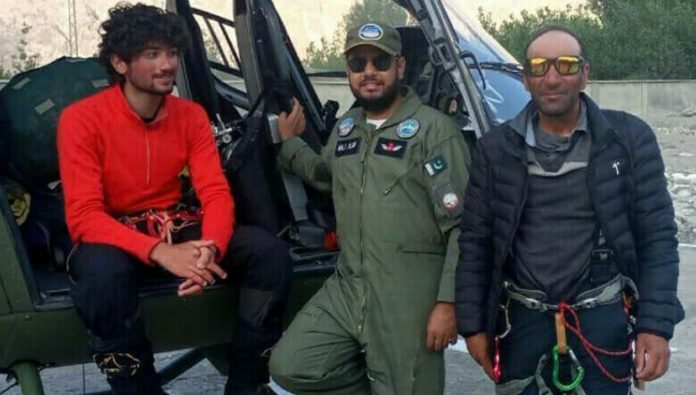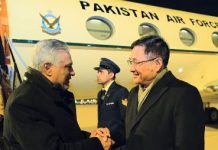Shehroze Kashif, who became the youngest climber to ever summit the killer mountain, has detailed how he and Fazal Ali survived after getting lost high on the mountain after summitting it.
The Lahore-based climber, along with Ali, had summitted the 8,126 meters tall Nanga Parbat, earlier in the week. But on their way back from the summit, a storm hit the mountain and contact was lost with the two climbers. It took a hectic rescue, mounted by the aviation division of the army to trace and bring the two climbers back.
In a video, that surfaced today after Shehroze and Fazal Ali were rescued on Wednesday, the 20-year-old climber was seen detailing the circumstances of his survival.
“As we were descending from the summit, I did not understand where to go because there were no ropes fixed there,” he said, noting that they had gotten lost a few hundred meters below the summit.
Before they could find a way down from the mountain, Shehroze said that night fell. With it, the temperature on the mountain also plunged to -45 degrees celsius.
“We dug a hole in the ice to protect our heads,” Shehroze could be seen stating in the video.
At this, one of the helicopter pilots, who had flown the rescue, asked did they build an igloo – a small dwelling made of ice. But Shehroze clarified that it was not an igloo.
“It was a hole big enough to fit our heads,” he said.
He then motioned at how they pushed their heads into the ice while the rest of their bodies lay exposed.
He was asked if the hole was dug at camp-III (6,750 meters).
But Shehroze said that they had not managed to climb down by that much by then and that they were still at around 7,500 meters, just 600 meters below the summit. This meant that they survived the night above even Camp-IV, which is at 7,300 meters.
He continued that the two climbers then went to sleep in harsh and inhospitable conditions.
“We did not think that we will even wake up, that this is all the life there was to live,” Shehroze said, continuing that their survival was a miracle.
“When I woke the next morning, I thought it was a miracle,” he said.

















